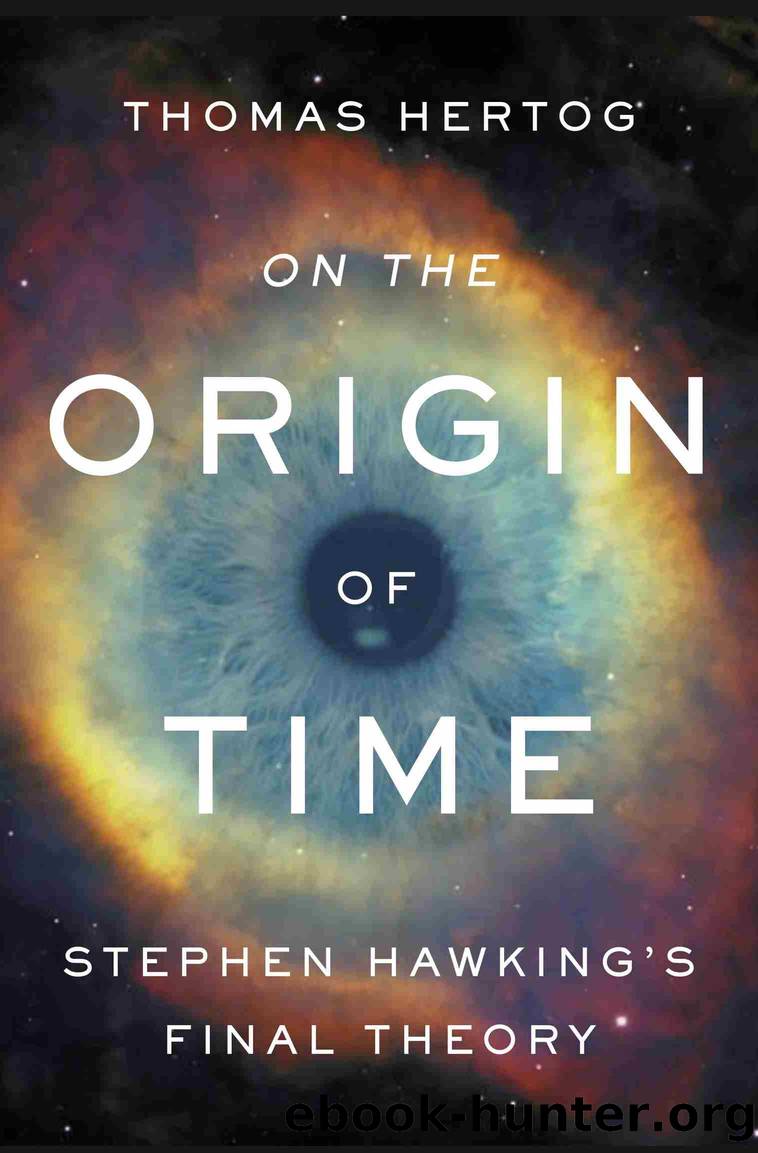On the Origin of Time by Thomas Hertog

Author:Thomas Hertog [Hertog, Thomas]
Language: eng
Format: epub
Publisher: Random House Publishing Group
Published: 2023-04-11T00:00:00+00:00
* * *
â
The pitfalls of reasoning on the basis of typicality are all too familiar from other historical sciences, from biological evolution to human history. Had Darwin assumed that we are typical, he would have considered an ensemble of earthlike planets with a variety of trees of life, all containing a Homo sapiens branch. He would then have attempted to predict that weâthis particular instance of Homo sapiens on planet Earthâshould be part of the most common tree of life among all possible trees with Homo sapiens branches. That is, he would have categorically ignored his key insight that each branching involves a game of chance, and that the tree of life as we know it encapsulates the convoluted history of trillions of accidental twists and turns, over billions of years of biological experimentation, rather than an external act of random selection.
The sheer vastness of the possibilities in biological evolution means that any kind of causal deterministic explanation of why we have this particular tree of life is doomed to fail. This is why biologists work ex post facto, describing how a given outcome leads back to a specific sequence of branchings. If anything, typicality can be a useful guiding principle to explain a few of the most general structural properties of the biosphere.
String theory conceives of an equally vast space of possible pathways when it comes to forging effective physical laws in the wake of the big bang, a quantum process involving random jumps and a series of symmetry-breaking transitions. As a consequence, a given outcome needs to be neither typical nor a priori likely.[10] Yet unlike modern biology, anthropic multiverse cosmology defies this randomness and clings to a fundamentally deterministic explanatory scheme that puts âwhyâ above âhow.â The case of biology suggests, though, that this offers a flawed basis for a better understanding of the appearance of design in cosmology. Nobel laureate David Gross, for one, has long held this view: âThe more we observe and know about the universe, the worse the anthropic principle fares.â[11]
Multiverse theory asserts that there are fundamental limits to the whole idea of evolution. Framing the ancient evolution leading to the effective laws of physics against the fixed backdrop of unchanging metalaws, multiverse cosmology adheres to what is, after all, a relatively orthodox explanatory scheme in physics. It assumes that all the way down at the bottom of physics and cosmology we will find stable, timeless metalaws. These metalaws are assumed to take the form of a central master equation governing the cosmic mosaic as a whole, from which the probabilistic predictions for low-energy observations like ours will be computable. Viewed in this grandest scheme, the multiverse is little more than an epicycle on Newtonian epistemology, somewhat like the way the ancients added epicycles onto epicycles in an attempt to rescue the Ptolemaic world model. Evolution and emergence ultimately remain secondary phenomena in multiverse cosmology, somewhat less fundamental. This is the very core of the matter of Hawking versus Linde: whether, deep down, either change or eternity wins.
Download
This site does not store any files on its server. We only index and link to content provided by other sites. Please contact the content providers to delete copyright contents if any and email us, we'll remove relevant links or contents immediately.
| Aeronautics & Astronautics | Astronomy |
| Astrophysics & Space Science | Comets, Meteors & Asteroids |
| Cosmology | Mars |
| Solar System | Star-Gazing |
| Telescopes | UFOs |
Tools of Titans by Timothy Ferriss(8360)
Turbulence by E. J. Noyes(8037)
Secrets of Antigravity Propulsion: Tesla, UFOs, and Classified Aerospace Technology by Ph.D. Paul A. Laviolette(5364)
Astrophysics for People in a Hurry by Neil DeGrasse Tyson(5172)
Room 212 by Kate Stewart(5102)
Design of Trajectory Optimization Approach for Space Maneuver Vehicle Skip Entry Problems by Runqi Chai & Al Savvaris & Antonios Tsourdos & Senchun Chai(5062)
Pale Blue Dot by Carl Sagan(4993)
The David Icke Guide to the Global Conspiracy (and how to end it) by David Icke(4696)
A Journey Through Divination and Astronomy by Publishing Pottermore(4376)
Goodbye Paradise(3795)
Apollo 8 by Jeffrey Kluger(3701)
COSMOS by Carl Sagan(3617)
The Five People You Meet in Heaven by Mitch Albom(3550)
Losing the Nobel Prize by Brian Keating(3531)
How to Read Water: Clues and Patterns from Puddles to the Sea (Natural Navigation) by Tristan Gooley(3456)
Brief Answers to the Big Questions by Stephen Hawking(3420)
How to Read Nature by Tristan Gooley(3326)
The Order of Time by Carlo Rovelli(3182)
A Brief History of Time by Stephen Hawking(3017)
